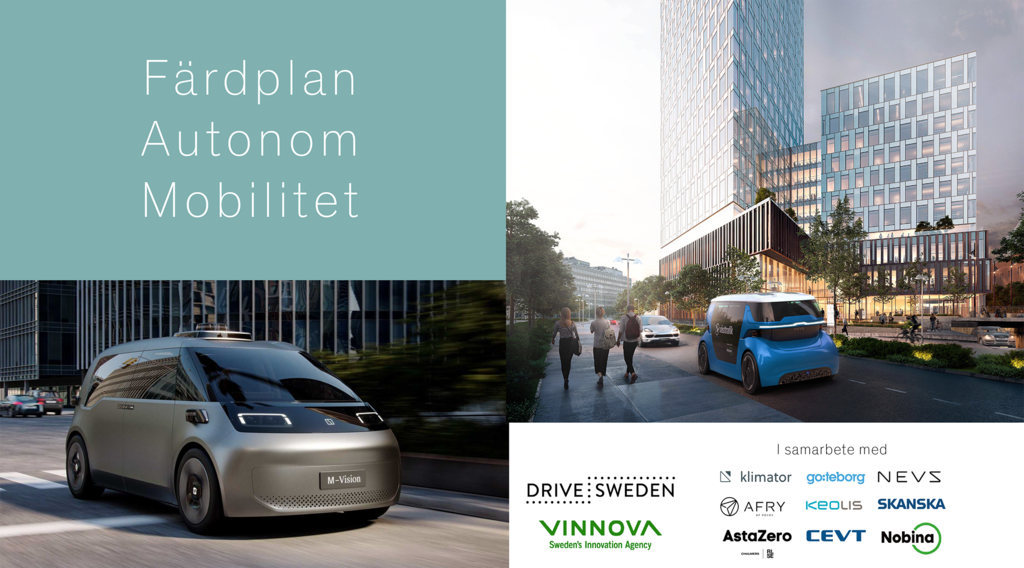Roadmap for sustainable mobility solutions based on autonomous driving in a complex city environment
The project (also called Autonomous Mobility Roadmap) has investigated, defined and inventored the conditions for autonomous mobility. Among other things, it has examined what prerequisites are needed for the technology regarding regulations and policies, physical and digital infrastructure, business models and service design, such as the public's acceptance of autonomous mobility and mobility needs.

Cities have for a long time been made it more difficult for cars to enter the city centers. The need for alternative mobility solutions is increasing for the people who previously used their private cars to drive into town. The restriction of car use is complemented by other planning measures, which promotes other mobility solutions such as walking, cycling, public transport and electric scooters. However, travelers have different needs and expectations of the transportation system, and autonomous mobility will most likely fill a role in the ecosystem.
The project
The project has continued to build on existing knowledge and experience within the field of autonomous and sustainable mobility solutions and take the "next step" in that direction by investigating the requirements regarding:
- Deployment of autonomous vehicles in complex urban environments, including different types of vehicles and different types of mobility solutions
- Deployment of autonomous vehicles at increased speed, relative to previous pilots, so they comply with the road regulations of the ODD and are good enough for the users of the service
- The urban planning and design challenges of autonomous mobility
- Necessary tests at test site and in urban environment
In addition, the project has investigated the feasibility of the following characteristics of autonomous vehicles in a complex urban environment:
- Removing the safety driver and allowing a human driver to intervene from remote when needed
- How to create an urban environment where autonomous mobility from different providers runs on the same roads and at the same time
The ambition has been to provide insights and tools that enable cities in general and Gothenburg in particular to accelerate the access to social benefits from sustainable and autonomous mobility in city centers, and that this roadmap should be useful in this process for initiatives from both the public and the private sector.
Watch the presentation from Drive Sweden Forum,
March 2023
Time period
August 2022 - February 2023
Contact
Maria Håkansson, Afry
Partners
AFRY, AstaZero, CEVT, Keolis, Klimator, NEVS, Nobina, Skanska, Trafikkontoret Göteborg
Vinnova number
2022-01736


